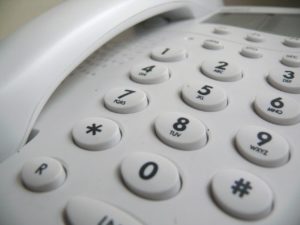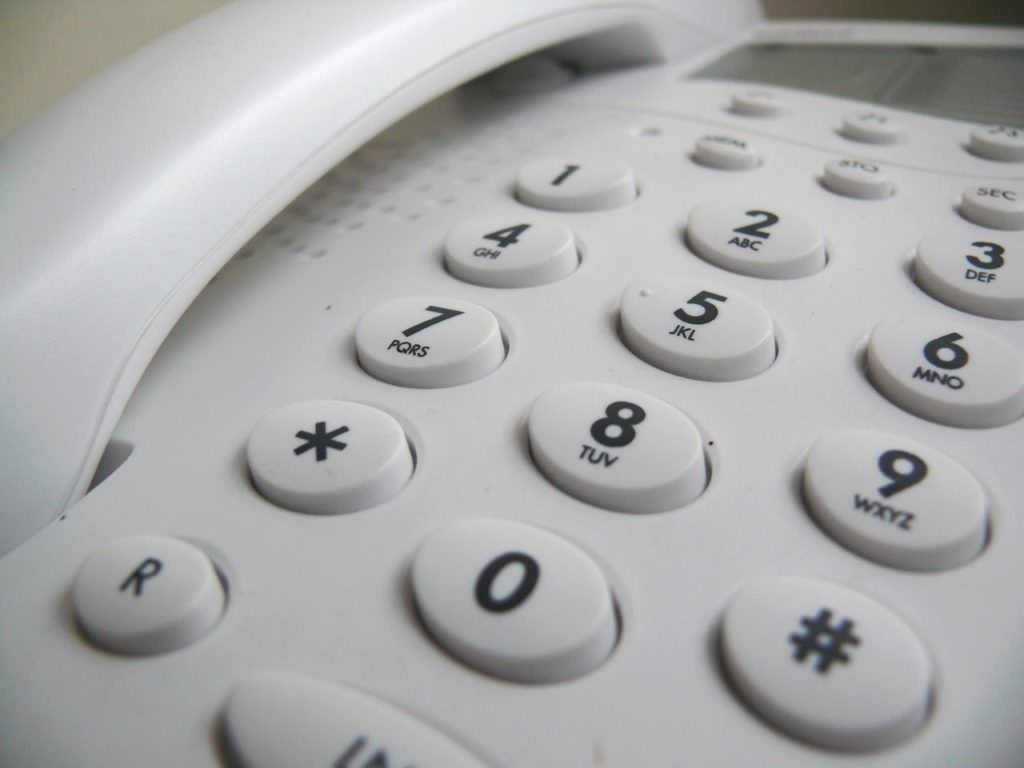Given the recent multitude of reports of phone scams attempting to get personal and/or financial information, we wanted to inform you about some of the types of phone scams that you may experience the next time you pick up the phone.
Here are 7 important things you need to know about scammers:
1. Everyone is a target
Everyone with a phone is a potential target. Fraud isn’t limited to race, ethnic background, gender, age, education, or income. However, some scams seem to concentrate more on certain groups, such as older people or immigrants.
2. They claim to be the government
Scammers will call and claim to be the Internal Revenue Service (IRS), stating that you owe back taxes on your home or business and that you will be arrested or jailed if you don’t pay up. When targeting foreign-born citizens, scammers will also threaten deportation. The scammers will give fake names and badge numbers in an attempt to frighten you into sending them money. They may even alter the caller ID to make it appear as though the call originated from the IRS. These calls have recently been reported in St. Cloud and Mankato.
Another scam has callers threatening that you will be arrested or jailed for missing jury duty unless you pay a fine. The number on caller ID may be disguised to look like it is coming from a courthouse, but court officials will not call requesting personal information or demanding payment for missing jury duty. In Minnesota, jury duty notices are mailed, and you will also be notified by mail if you miss jury duty. Report any calls like this to your county’s jury office and to the Better Business Bureau.
Also beware of offers to “help” you recover money you have already lost. Callers that say they are law enforcement officers who will help you get your money back “for a fee” are scammers.
3. They pretend to be a relative in trouble
Generally, this involves a scammer pretending to be a relative, often a younger relative like a niece, nephew, or grandchild, and claiming to have been arrested, injured, or robbed. These kinds of scams often target older adults. The scammer will beg the grandparent not to tell the “child’s” parents and the scammer may even have personal information obtained through social media or identity theft in an attempt to better convince the grandparent of the validity of the claim. Often, these scammers will want money wired to them.
If you receive this kind of call, it can be disturbing, especially if the scammers have you or your family’s personal information. Take down a phone number, location information, the number on caller ID, and then contact other relatives to ascertain the validity of the caller’s claims. For example, if your “granddaughter” Susie calls and claims to have gotten in a car accident while at college and needs some money to fix it, call Susie’s parents and see if she is indeed at college, or if she has a car.
4. They require payment to claim a prize
If someone calls and requires you to pay a “small” amount of “fees” or “taxes” in order to claim a bigger prize, don’t give in. If you have to pay to claim a prize or winnings, it’s a purchase, not a prize or gift. Another clue it may be a scam is if you don’t know anything about what the caller claims is a contest or drawing you won.
5. They pretend to be a charity
This type of scam frequently occurs after some type of natural disaster. Before you get out the checkbook, check out the charity. Ask how much of your donation actually goes to the charity. Ask the caller to send you written information so you can make an informed decision without being pressured, rushed, or guilted into it. Call the charity directly later if you choose to donate.
6. They make your number appear on your caller ID
This is known as caller ID spoofing. According to the Austin Daily Herald, “Spoofing scams are often perpetrated by criminal gangs located outside the state or country attempting to mask their identity and evade law enforcement. Under the Federal Truth in Caller ID Act of 2009, using caller ID spoofing to defraud someone is a crime.”
If your own name and number appear on your caller ID, do not answer. If you answer, the scammer will know your line is active and may continue calling. If you receive a call like this, notify the Federal Communications Commission by calling 1-888-CALL-FCC or file a complaint at www.fcc.gov/complaints.
7. They have many strategies
Scammers will say anything to cheat people out of money. Some seem very friendly — calling you by your first name, making small talk, and asking about your family. They may claim to work for a company you trust, or they may send mail or place ads to convince you to call them.

Often, scammers who operate by phone don’t want to give you time to think about their pitch; they just want you to say “yes.” But some are so cunning that, even if you ask for more information, they seem happy to comply. They may alter what appears on your caller ID, give you a fake name, title, company, and other information in order to scam you. They may direct you to a website or otherwise send information featuring “satisfied customers.” These customers, known as shills, are likely as fake as their praise for the company.
If you get a call from someone you don’t know who is trying to sell you something you hadn’t planned to buy, say “No thanks.” And, if they pressure you about giving up personal information — like your credit card or Social Security number — it’s likely a scam. Hang up and report it to the Federal Trade Commission.
Important Tips to Remember to Avoid Getting Scammed
- Never send money or give banking or credit card information to someone you don’t know.
- Never send or transfer money for someone else. This is how money laundering schemes work. Why would you need to send money for someone else when that person could do it?
- Keep your credit card, checking account, or Social Security numbers to yourself. Don’t tell them to callers you don’t know — even if they ask you to “confirm” this information. That’s a trick.
- Don’t send cash by messenger, overnight mail, or money transfer. If you use cash or a money transfer — rather than a credit card — you may lose your right to dispute fraudulent charges. The money will be gone.
There are steps you can take to avoid these kinds of calls. One is to join the National Do Not Call List. You can register home and cell numbers, and while it won’t stop all calls, it should at least reduce the amount of calls you receive. However, some scammers, such as caller ID spoofers, ignore the National Do Not Call List.
If you think you may be on the phone with a scammer, simply hang up. They can’t scam you if you won’t talk to them. If you do receive a call that you think might be a phone scam, register a complaint with the Federal Trade Commission and the Internet Crime Complaint Center.
Sources: Albert Lea Tribune – Tips to avoid scams over email and the Internet: Part 1, Albert Lea Tribune – Tips to avoid scams over email and the Internet: Part 2, The Federal Trade Commission: Consumer Information – Phone Scams, St. Cloud Times – BBB warns of jury duty scam in Minnesota
Updated May 20, 2020

